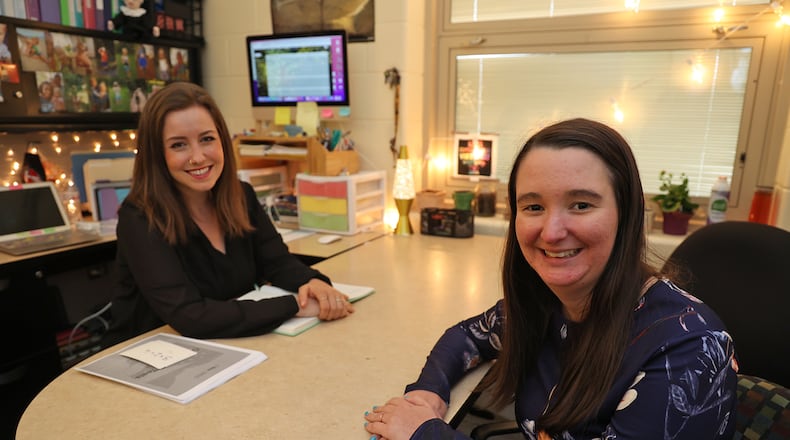About 80% of Ohio schools that were eligible for wellness and mental health services funding took advantage of it last school year. Those schools spent a combined $289 million on that programming, according to the Ohio Department of Education.
Ohio dedicated $675 million toward the Student Wellness and Success program for 2019-21 because officials recognized that need for expanding service prior to the pandemic. Last summer, the legislature appropriated funds to continue the program until the end of the next school year.
To get the money, schools had to implement a program for one of the approved causes of the funding, such as physical and mental health or welfare and foster services; work with an approved local community partner, such as a hospital or county mental health board; and submit a report detailing what their plans were at the end of each fiscal year.
Tecumseh Local Schools used part of their funds to hire two additional guidance counselors, contract with Mental Health Services (MHS) of Clark and Madison Counties for full-time mental health therapists, and contract with the Clark County Education Service Center (ESC) for two full-time nurses.
Superintendent Paula Crew said the district also added some programs to support students who have experienced self-injurious behaviors, suicidal ideologies, thoughts, and suicidal attempts called the Hope Squad, which is at the middle and high schools.
“Hope Squad is a peer-to-peer suicide prevention program. Members are trained by advisors within the school setting to help fellow students who reach out to them and connect with the appropriate personnel to help them,” she said.
Crew said the district recognized the need to add more support systems to meet students’ needs in all areas several years ago.
The district established a mental health committee eight years ago that is now composed of guidance counselors, school psychologists, central office administrators, mental health therapists, a school nurse, the School Resource Officer, building principals, and members from external resources to include Family and Youth Initiatives and Mental Health Services of Clark and Madison Counties.
“When students have social, emotional, and mental health issues, these act as barriers to their academic learning. In order for us to accomplish our goal of teaching our students, we must offer assistance with these barriers to both support our students and maximize learning,” Crew said.
But like shortages in many other school positions, the schools need more qualified people to meet demand.
Springfield City Schools has expanded its school psychology staff, although there has been a state-wide shortage, and will add two full-time mental health specialists next school year.
The district has school counselors at each school, added more behavior specialists, social workers and case management, full-time contracted mental health counselors, partners with the Clark County ESC for an on-staff clinical psychologist as well as school psychologists, and partners with local agencies to bring in individual and small group counseling services at all buildings that includes staff from the ESC and MHS.
Springfield schools also gives staff access to a program that provides them support with insurance and mental health services, and they are working to contract a private provider to offer therapeutic sessions; and the district has a Crisis Response Team that provides support to students and staff in the event of a loss.
“The district works very hard to make sure our students are equipped with all of the resources they need to be successful as it relates to their mental health through the Student Services Department,” said Communications Specialists Jenna Leinasars.
At Triad Local Schools, the district has three counselors and a School Navigator to help link students, staff, and families to counseling and supports, and added an extra school counselor and social worker.
“Mental health has been a continued focus for the district for many years… We have expanded mental health services every year for the past three years,” said Superintendent Vickie Hoffman. “Triad has had several different trainings with multiple agencies in the past six years to help teachers and counselors to support our students and families.”


